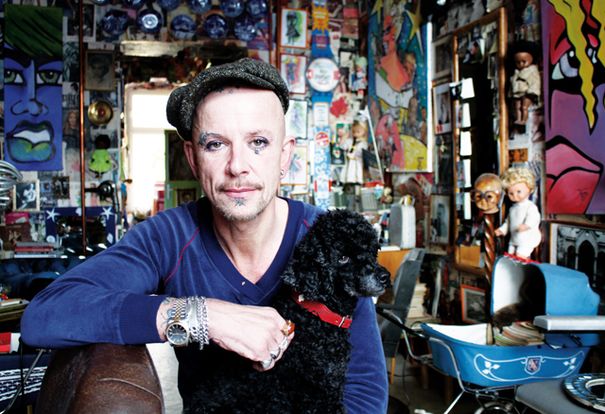The Iron Closet
In Berlinale Panorama, the documentary AMONG MEN collects memories from the gay community of East Germany, from a time in which walls public and private were still standing.

AMONG MEN – GAY IN EAST GERMANY
On the night of November 9, 1989, the ground-breaking gay film COMING OUT was set to premiere to an East German repressed, homosexual audience, but fatefully, another ground-breaking event occurred that night: the Berlin Wall came down. As co-director Ringo Rösener narrates in his and Markus Stein’s Panorama documentary UNTER MÄNNERN – SCHWUL IN DER DDR (AMONG MEN – GAY IN EAST GERMANY), the gay GDR community was robbed that night of their triumphant COMING OUT.
Now, two decades later, the stories of gay life in a straight socialist state are at risk of being buried six feet under, lost to a generation who can simply Google their way to an understanding of their sexuality. There’s still work to be done, of course, and Rösener and Stein’s noble aim with AMONG MEN is to open up the Iron curtain and closet, shedding light on the past in hopes of empowering the future.
The film is made up of a half-dozen interwoven stories of gay men who lived around the GDR. Now well into their golden years, they reflect – both painfully and proudly – on being considered enemies of the state. In talking heads tradition, each speak of how they first learned of their sexual orientation, and subsequently, how they learned to conceal it – from walking three meters behind their partner in public, to convince even themselves that they were straight in order to retain a sense of normality. As sobering as it sounds, AMONG MEN possesses a surprisingly humorous and light touch, aided considerably by the varying flamboyancy of each interviewee, none of whom are given a titled introduction as if to say these are shared experiences, not individual ones.
As inferred by the film’s title, what’s missing from AMONG MEN is a female voice. With only fleeting references the subject’s mothers and past girlfriends – none of whom are sought for interview – one gets the impression women do not factor into the lives of these men at all. Furthermore, if this was your only purveyor to the plight of homosexuals in East Germany, you mightn’t realise lesbianism in the GDR even existed. It’s an important omission, not only because it results in an inconclusive depiction of gay life under Soviet socialism, but also because the segregation of the stories of gay men from those of gay women is indicative of the inequity the film staunchly opposes.
Still, Stein and Rösener have succeeded admirably in giving the male gay community their belated "coming out" in this year’s Panorama section, a programme known for its strong homosexual representation. Triumphantly and tellingly, AMONG MEN closes with one of its subjects taking to the streets of his once resolutely conservative GDR village in wedding drag, an act that would have had him scolded and arrested under socialist rule. Today, however, an onlooker turns his head to observe the spectacle, smiles, and carries on about his day.


301 Moved Permanently